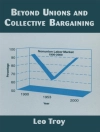A holistic view of human development that rejects the conventional stages of childhood, adulthood, and old age
When we talk about human development, we tend to characterize it as proceeding through a series of stages in which we are first children, then adolescents, and finally, adults. But as James Bernard Murphy observes, growth is not limited to the young nor is decline limited to the aged. We are never trapped within the horizon of a particular life stage: children anticipate adulthood and adults recapture childhood. According to Murphy, the very idea of stages of life undermines our ability to see our lives as a whole.
In Your Whole Life, Murphy asks: what accounts for the unity of a human life over time? He advocates for an unconventional, developmental story of human nature based on a nested hierarchy of three powers—first, each person’s unique human genome insures biological identity over time; second, each person’s powers of imagination and memory insure psychological identity over time; and, third, each person’s ability to tell his or her own life story insures narrative identity over time. Just as imagination and memory rely upon our biological identity, so our autobiographical stories rest upon our psychological identity. Narrative is not the foundation of personal identity, as many argue, but its capstone.
Engaging with the work of Aristotle, Augustine, Jesus, and Rousseau, as well as with the contributions of contemporary evolutionary biologists and psychologists, Murphy challenges the widely shared assumptions in Western thinking about personhood and its development through discrete stages of childhood, adulthood, and old age. He offers, instead, a holistic view in which we are always growing and declining, always learning and forgetting, and always living and dying, and finds that only in relation to one’s whole life does the passing of time obtain meaning.
Table des matières
Introduction. The Story of Your Life
Part I. Stories of Development
Chapter 1. Human Nature from a Developmental Perspective
Chapter 2. Development as the Recapitulation of Nature in Aristotle
Chapter 3. Development as Preformation in Augustine’s Confessions
Chapter 4. Development as the Recapitulation of History in Rousseau
Chapter 5. Development as Juvenilization in the Synoptic Gospels
Part II. Unifying the Whole
Chapter 6. All of Me: Stages and the Whole of Life
Chapter 7. What Am I? Human Beings and Human Persons
Chapter 8. Who Am I? A Storybook Life
Conclusion. A Practical Guide to Life Writing
Notes
Index
Acknowledgments
A propos de l’auteur
James Bernard Murphy is Professor of Government at Dartmouth College. He is author of The Moral Economy of Labor: Aristotelian Themes in Economic Theory, The Philosophy of Customary Law, The Philosophy of Positive Law, and, with Graeme Garrard, How to Think Politically: Sages, Scholars and Statesmen Whose Ideas Have Shaped the World.












